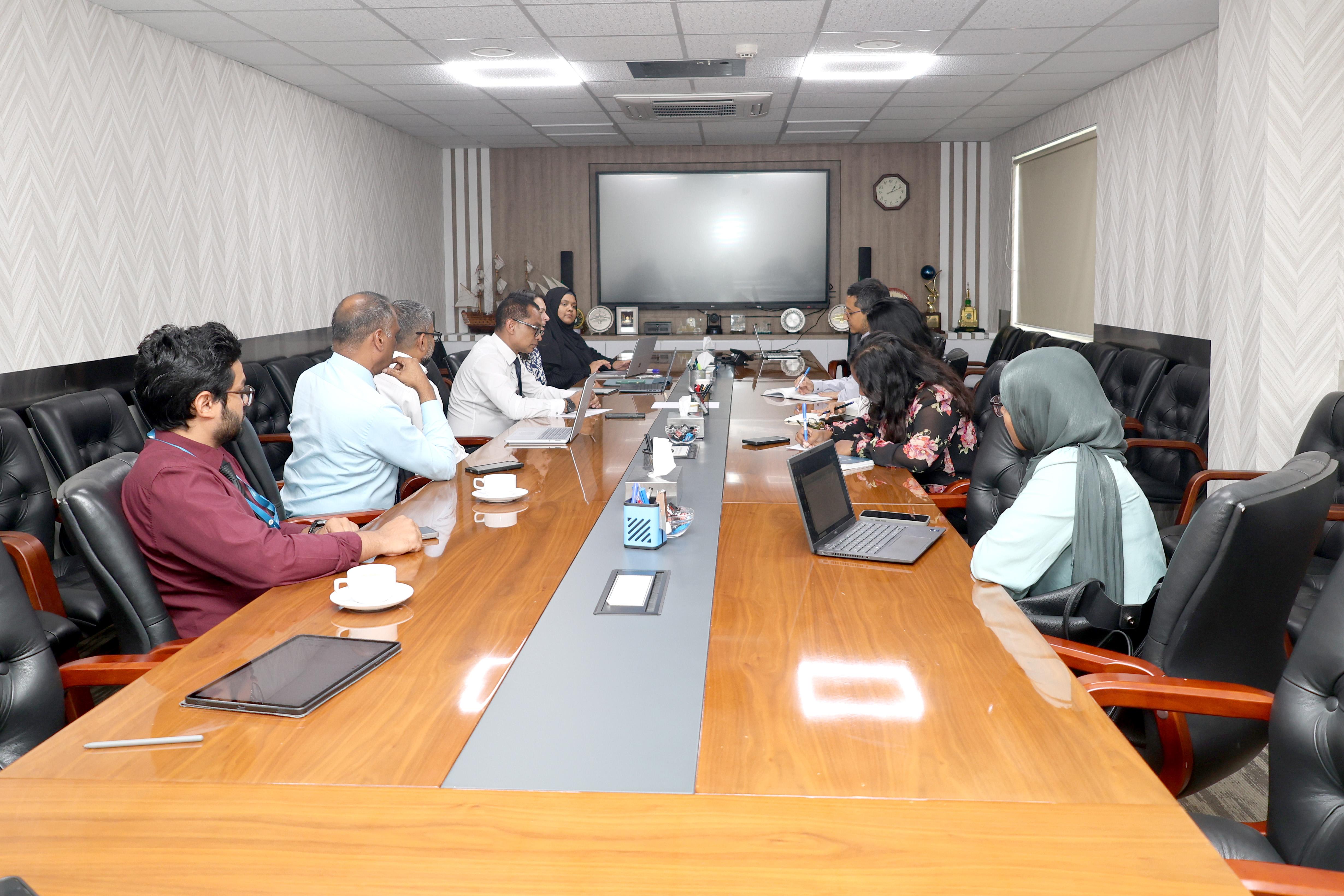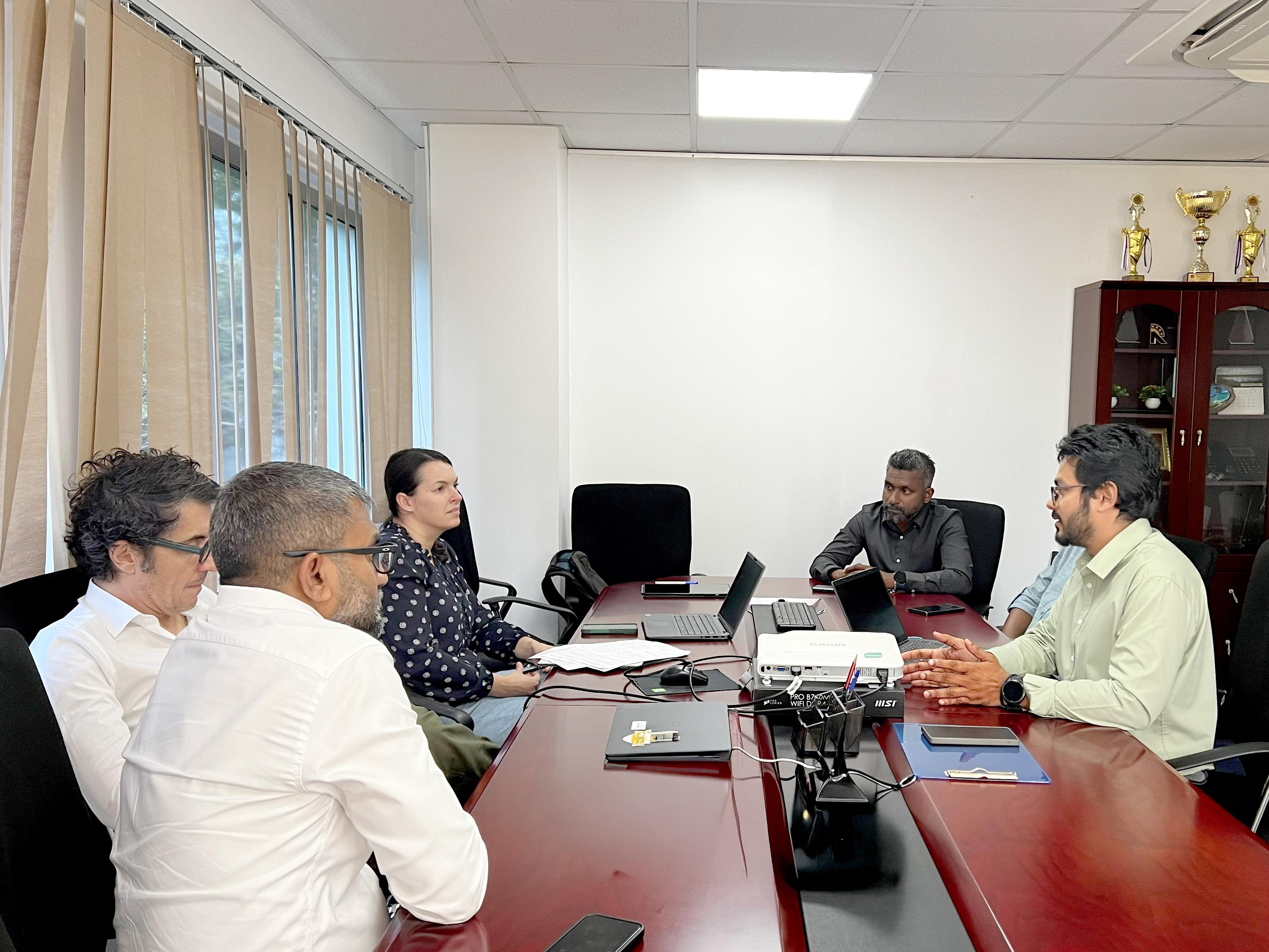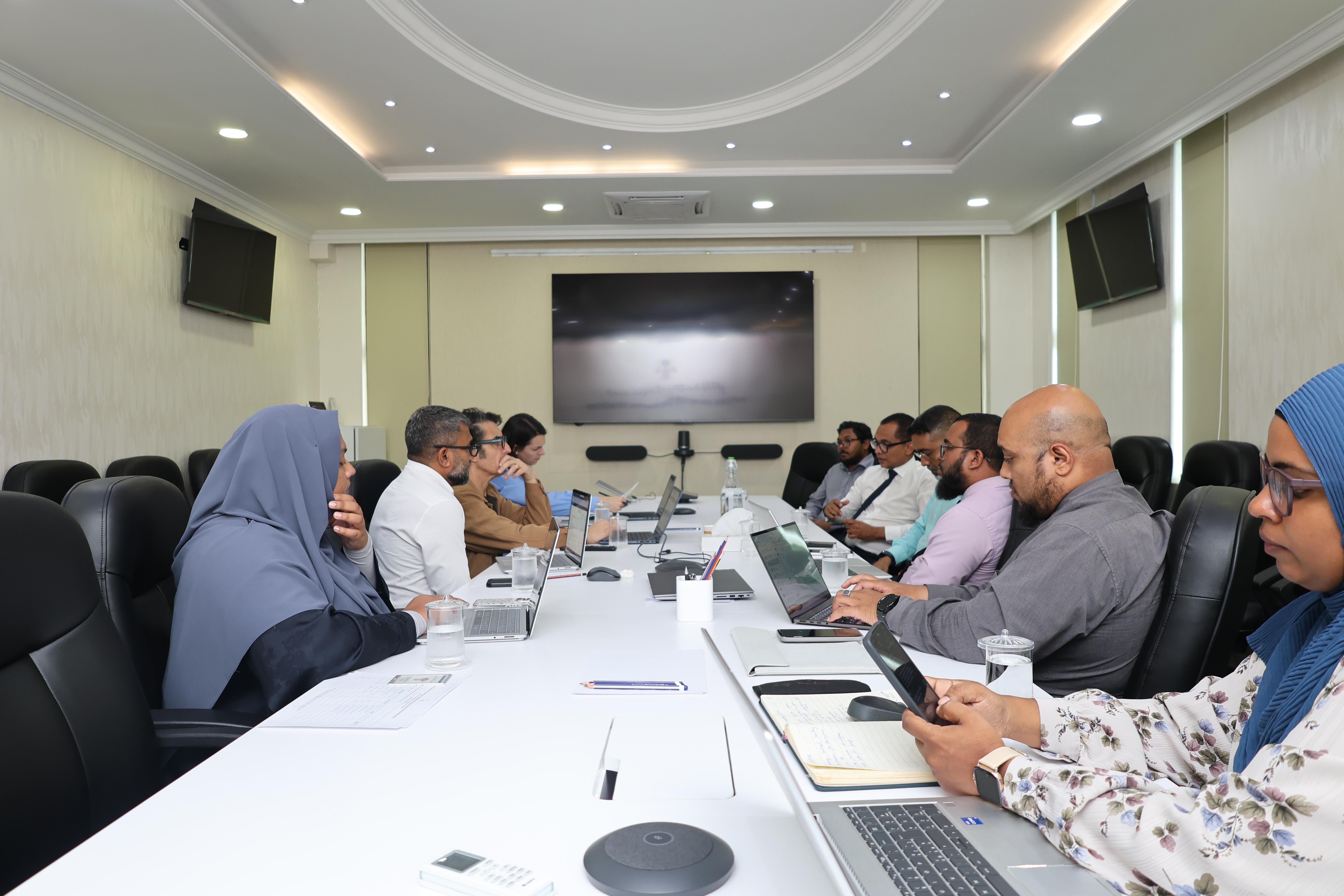News
Implementing a Multi-Hazard Early Warning System in Fuvahmulah has Begun with the First Round of Stakeholder Engagement
26 November 2024
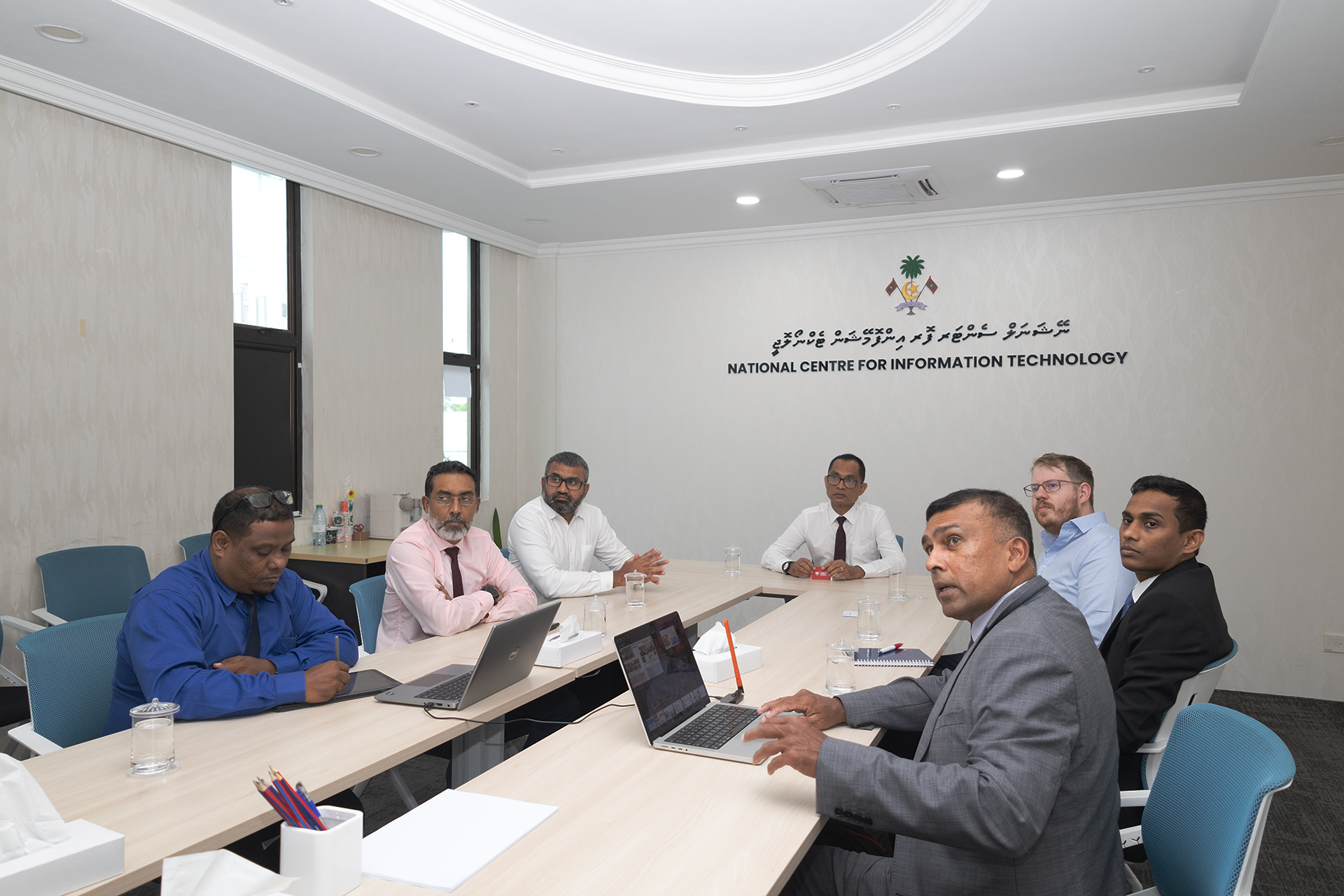
A Pilot Project to establish a Multi-Hazard
Early Warning System (MHEWS) under component three of the D’MADD project has commenced.
The University of Salford (Service Provider) team, led by Professor Terrance
Fernando, visited the Maldives from 17th November 2024 to 27th November 2024 to
conduct a series of stakeholder engagement sessions to begin the situation
analysis and needs requirements of the System. Other team members included Mr. Amilia
Liyanage (Quality of Service Specialist) and Ben Monaghan (Lead Software
Engineer for the Mobilise
Platform). During their visit, they met relevant stakeholders and beneficiaries.
These include the National Centre for Information Technology, The Ministry of
Climate Change, Environment and Energy, the National Disaster Management
Authority, the Maldives Meteorological Service, the Fuvahmulah City Council,
and specific disaster responding agencies of the island.
During the individual meetings, Professor
Terrance Fernando introduced himself and explained the scope of the envisioned
pilot. He also presented the Mobilise
platform developed by ThinkLab, an initiative of Salford University. The MHEWS
pilot to be implemented in Fuvahmulah City will be based on this platform. MOBILISE
is a digital platform that provides local stakeholders with digital solutions
for supporting climate adaptation and resilience activities. It enables
multi-agency collaboration and community engagement and facilitates a
participatory approach to implementing climate adaptation and resilient
measures against climate change.
The team began the series of meetings on 18
November 2024 with a meeting with the National Centre for Information
Technology (NCIT). Professor Fernando Explained how the project would
complement the UNDRR Early Warning Road map for the Maldives and introduced the
project plan and the MOBILISE Platform.

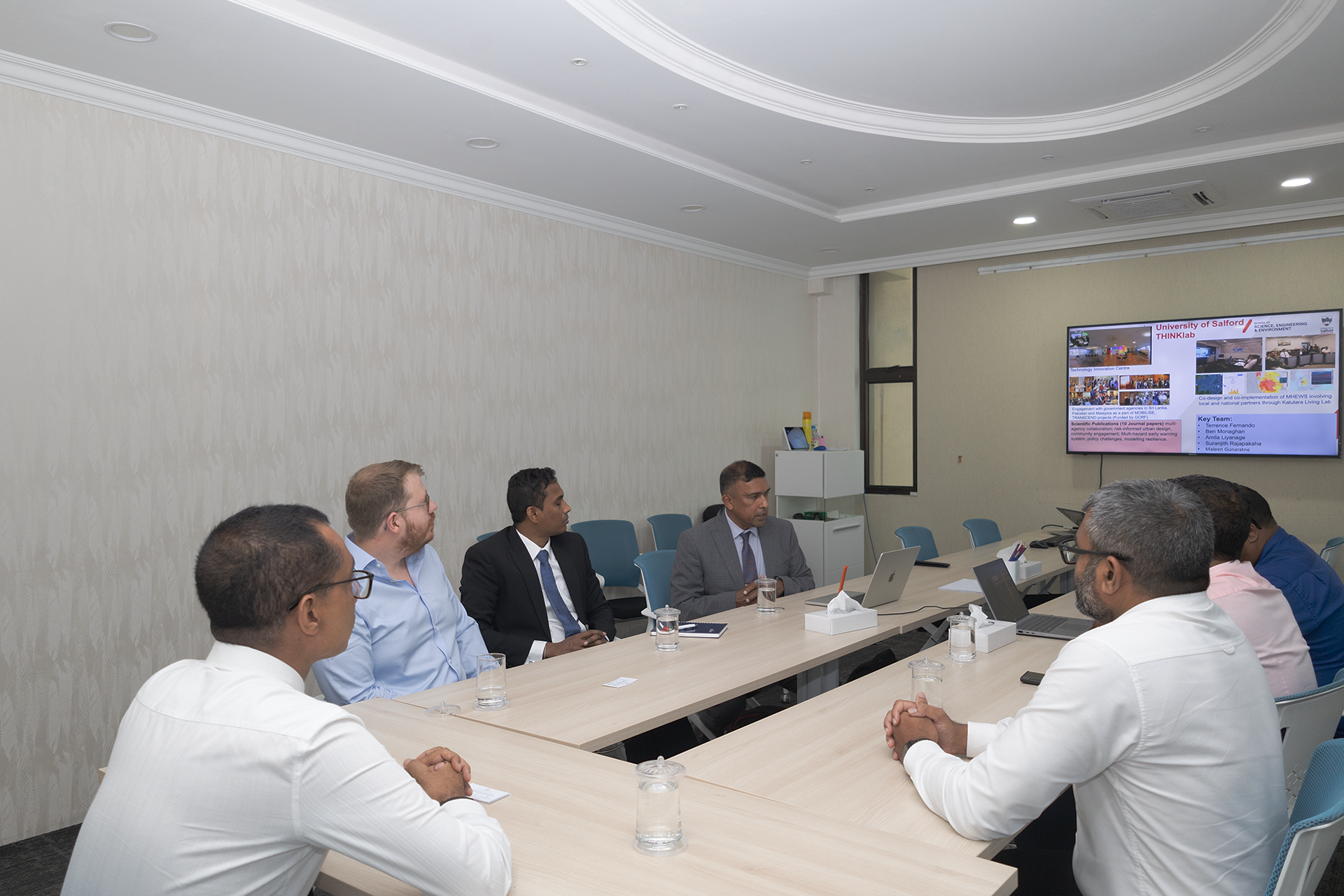
The NCIT team was led by Minister of State for
Homeland Security and Technology, Dr. Mohamed Kinaanath, and Senior Software
Developer Mr. Hany Nasyr. Dr. Mohamed Kinaanath oversees the government's
technology portfolio. He explained the government’s broader policy on technology,
highlighting the ongoing work on strengthening the national cybersecurity
resilience and the national AI masterplan. He also explained the NCIT's role in
the UNDRR early warning roadmap. He also shared the details of the plans for
the legislative process to strengthen data protection and cybersecurity in the
Maldives.
The meeting's significant discussion revolved
around migration and support for the system after the project support period ended,
including the system's maintenance and hosting requirements.
The second meeting took place the same day at the
Maldives Meteorological Service (MMS) office at Velaanaa International Airport.
The team again introduced the project details and scope. Detailed discussions concerned
integrating the proposed MHEWS architecture with the MMS data system and
services. During the discussion, MMS highlighted similar projects currently
underway and how the MHEWS pilot could complement these initiatives. They also
inquired about the current work done at MMS, such as the future of their in-house
mobile app. One of the major concerns expressed was the maintenance of the
system after the project. Dr. Waheed highlighted the discussions with NCIT on
the issue, which will be determined during the later stages of implementation.

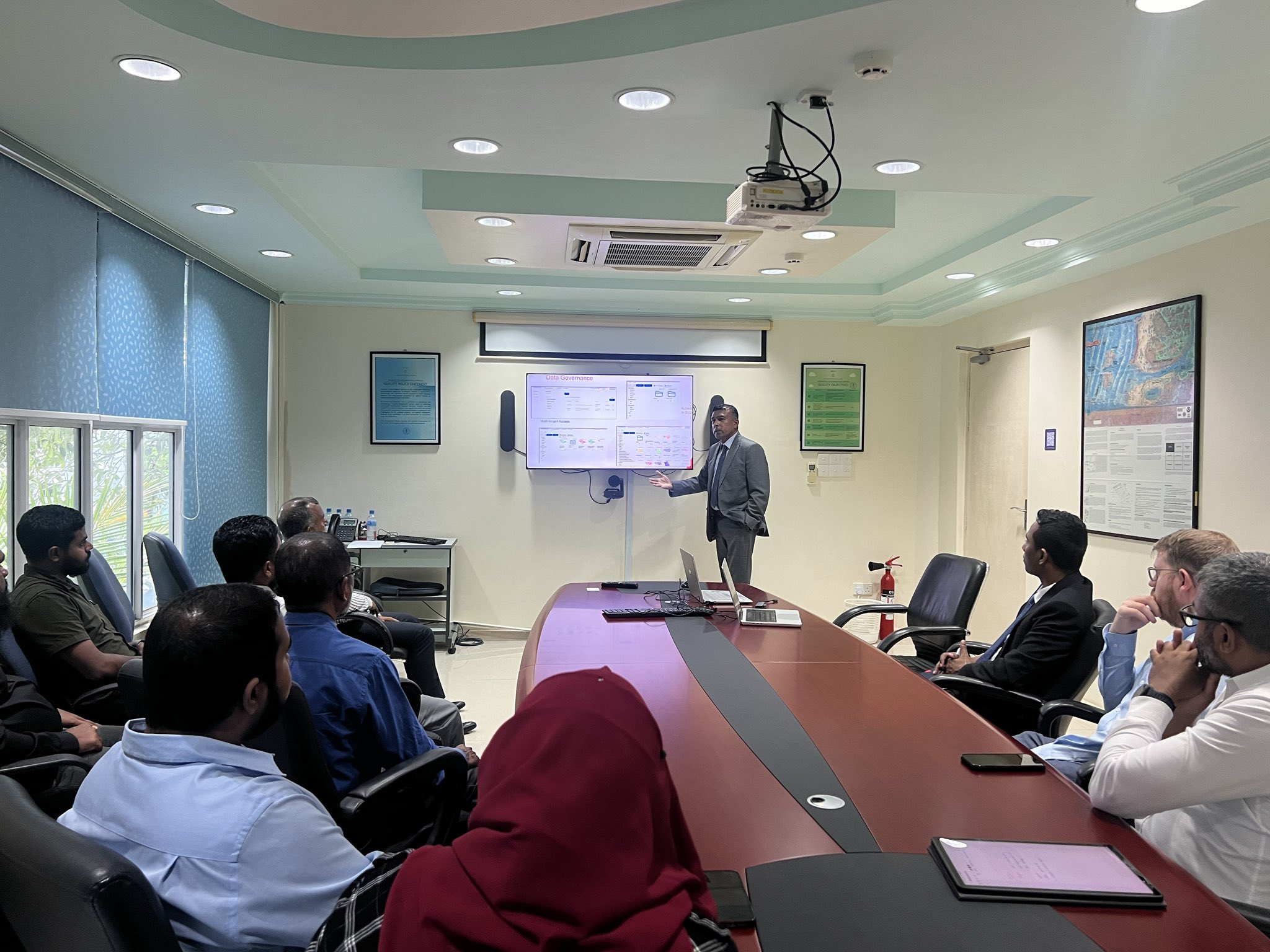
The MMS team also inquired how and what data
will be shared from the system. Professor Terrance Fernando explained the
customizability of giving limited views to personnel necessary for the system. Dr.
Waheed also highlighted that since the pilot is to be established in
Fuvahmulah, a small living lab on the island where operations can be
coordinated at the local level.
The need to input relevant data for the island
was also discussed. These include 3D models of key infrastructure on the island
to be mapped in the platform for visualizations.
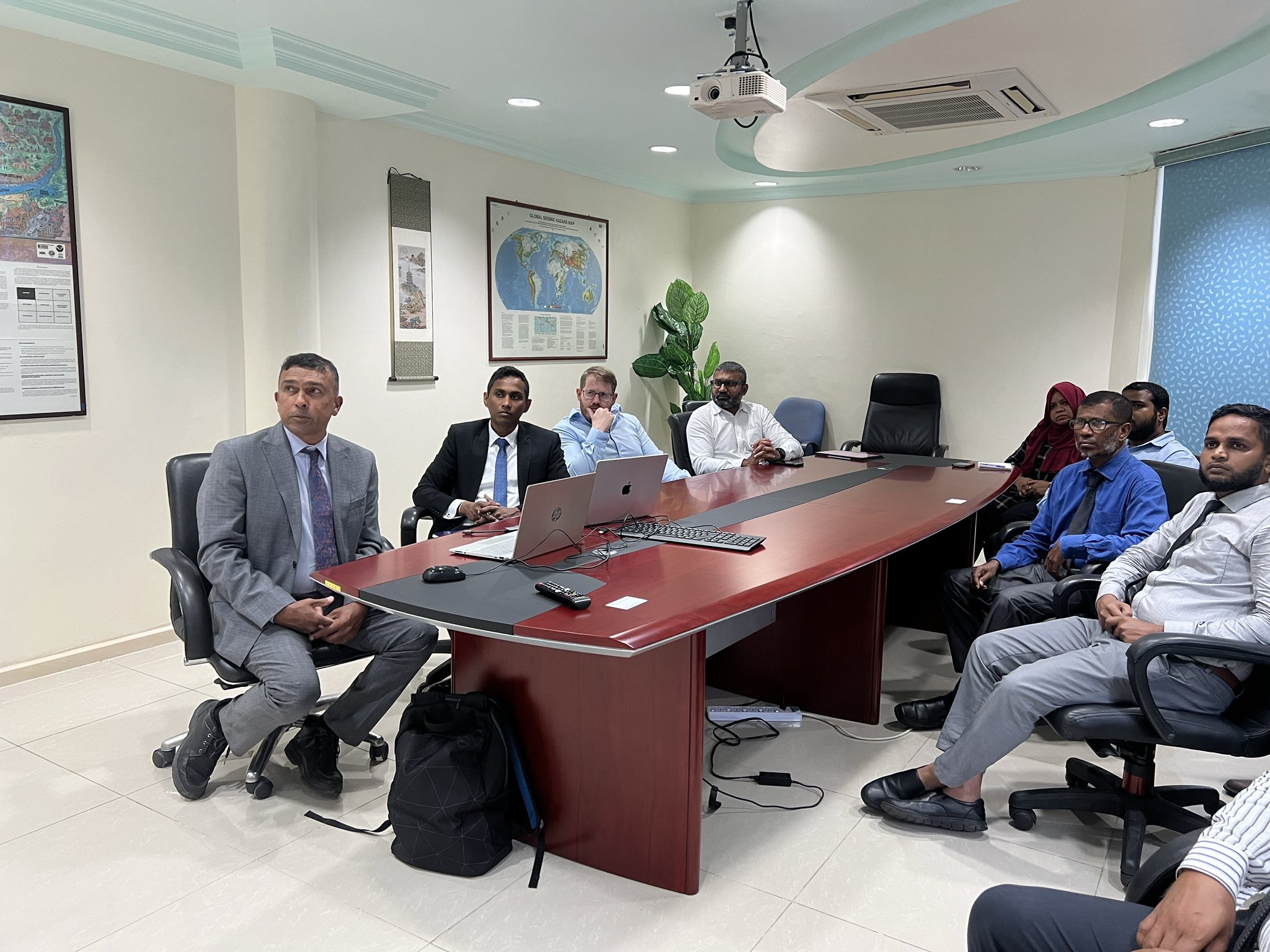
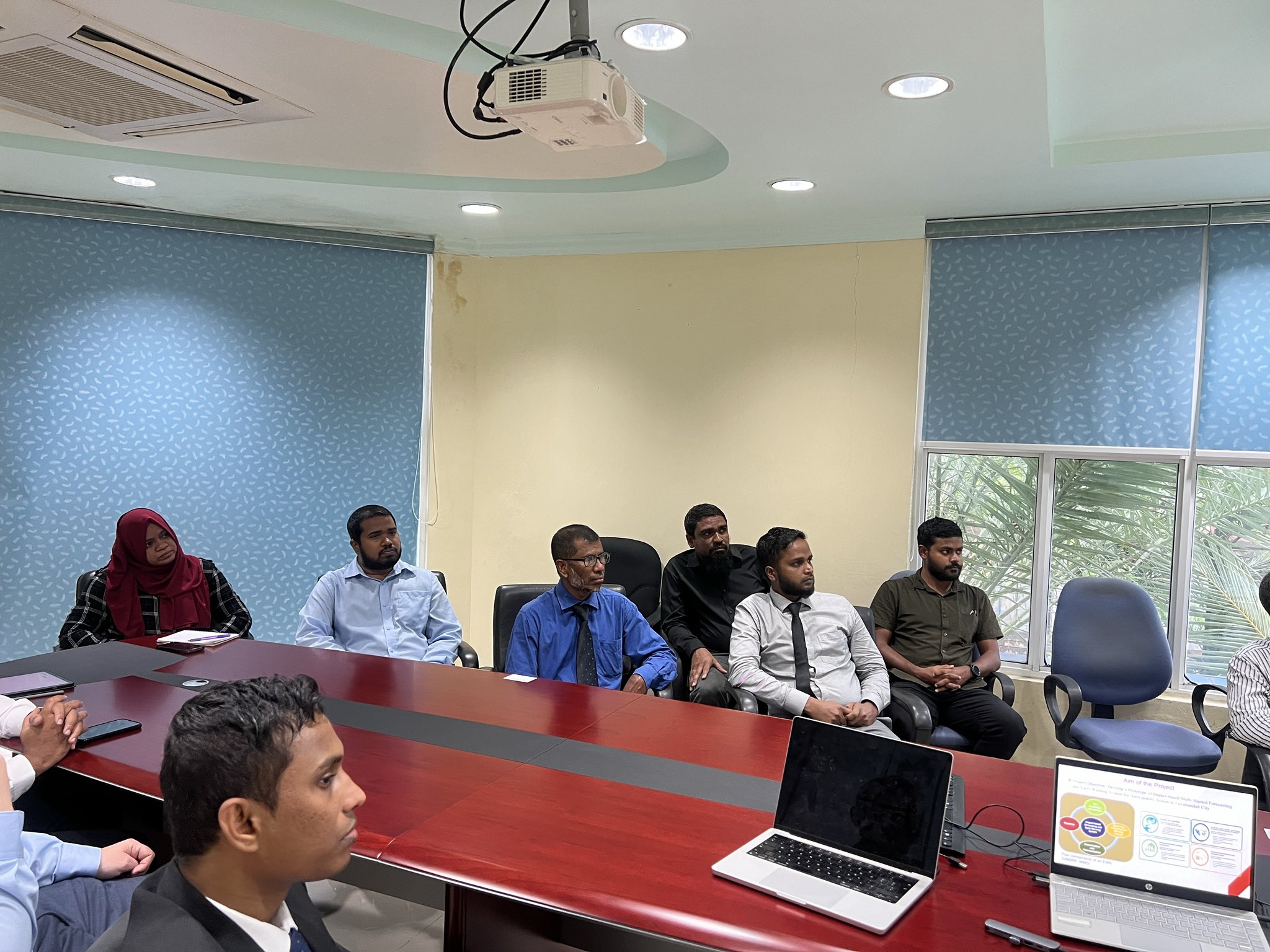
To conclude, the teams agreed to appoint a
focal point from MMS and have frequent and regular meetings during the
requirement phase. The University of Salford team was given a tour of the MMS
and presented the climate data collection and monitoring infrastructure. They
also presented how they communicated weather information and alerts to the
public using social media platforms for community messaging. Mr. Abdulla Wahid (Director
General, Meteorology), Mr. Ahmed Rasheed (Director, Meteorology), Mr. Ibrahim
Humaid (Seismologist), Mr. Nasooh Ismail (Meteorologist), Ms. Aishath Rasheed (Meteorologist)
and Mr. Mohamed Shahud (Meteorologist) joined the meeting from MMS.
On the 19th of November 2024, the
team had a combined meeting with the Ministry of Climate Change, Environment
and Energy (MoCCEE) and the National Disaster Management Authority (NDMA). Like
the prior meetings, the team introduced the scope of the project with the
project plan and opened the floor for requirements. The discussions consisted
of acquiring necessary data sets for the platform from the government. Policy
on data sharing was also discussed. Both the Ministry and the NDMA informed
that flood maps for the city are being developed and are on the verge of
completion. The Ministry proposed that the consultants identify the needed data
and how it should be structured and share it with relevant stakeholders.

Another aspect discussed was the Maldives'
staff capacity to build flood models and the cost of software for the work.
Professor Terrance Fernando highlighted that open-source software can be used
and that training will provide additional support during the pilot project. Ms.
Priyanka Dissanayake (Senior Disaster Management Specialist) from the South
Asia Disaster Risk and Climate Unit participated in the meeting. She highlighted
that the World Bank will assist with capacity building under the trust fund
linked to the D’MADD project.


Mr. Ajwad Musthafa (Permanent Secretary), Mr.
Afsal Hussain (Director), and Mr. Ibrahim Kashif (Director of Policy Planning)
represented the Ministry. Mr. Ibrahim Kashif attended from the NDMA. Project
Manager Dr. Ibrahim Waheed and Communications Specialist Ahmed Haleem represented
D’MADD PMU in the meetings.
The Salford team also travelled to Fuvahmulah
City from 21 to 24 November 2024. The University of Salford team and Dr.
Ibrahim Waheed conducted two meetings during the visit. The first meeting was
with the Fuvahmulah City Council. Mayor Ismail Rafeeq led the council team,
which included the councilors, secretary general, senior council executive, and
director of ICT. After introducing the project plan and the MOBILISE platform,
the Salford team discussed the implementation approach, access to data and the
establishment of the Living Lab on the island. The mayor highlighted that the elevation
model of Fuvahmulah island is being developed by the Ministry of Climate
Change, Environment and Energy and will be a vital data source. A separate
discussion was held with the council's Information Technology team, led by
Ahmed Ibrahim, Director of ICT, to explain the technicalities of the
cloud-based solution behind the platform.
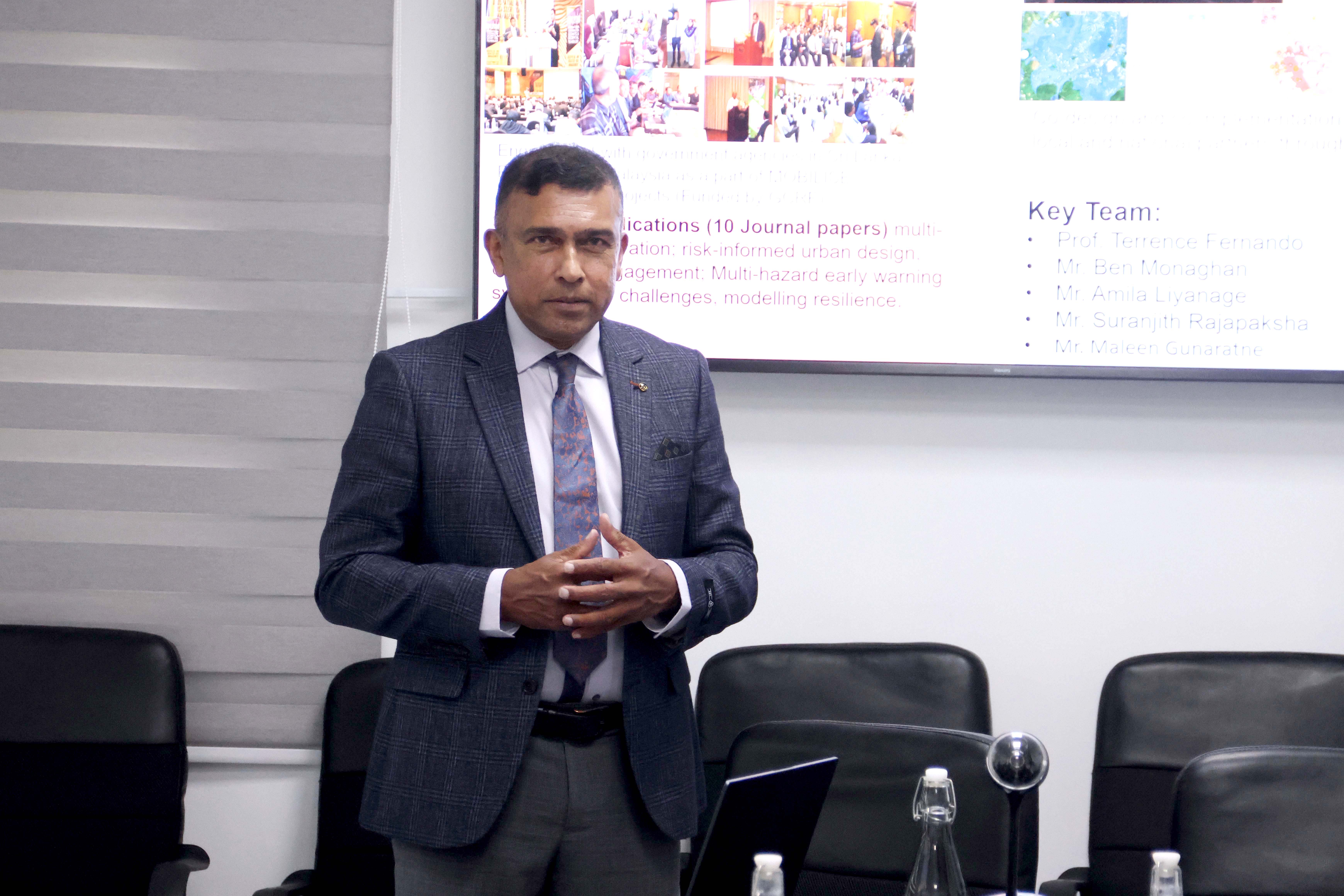
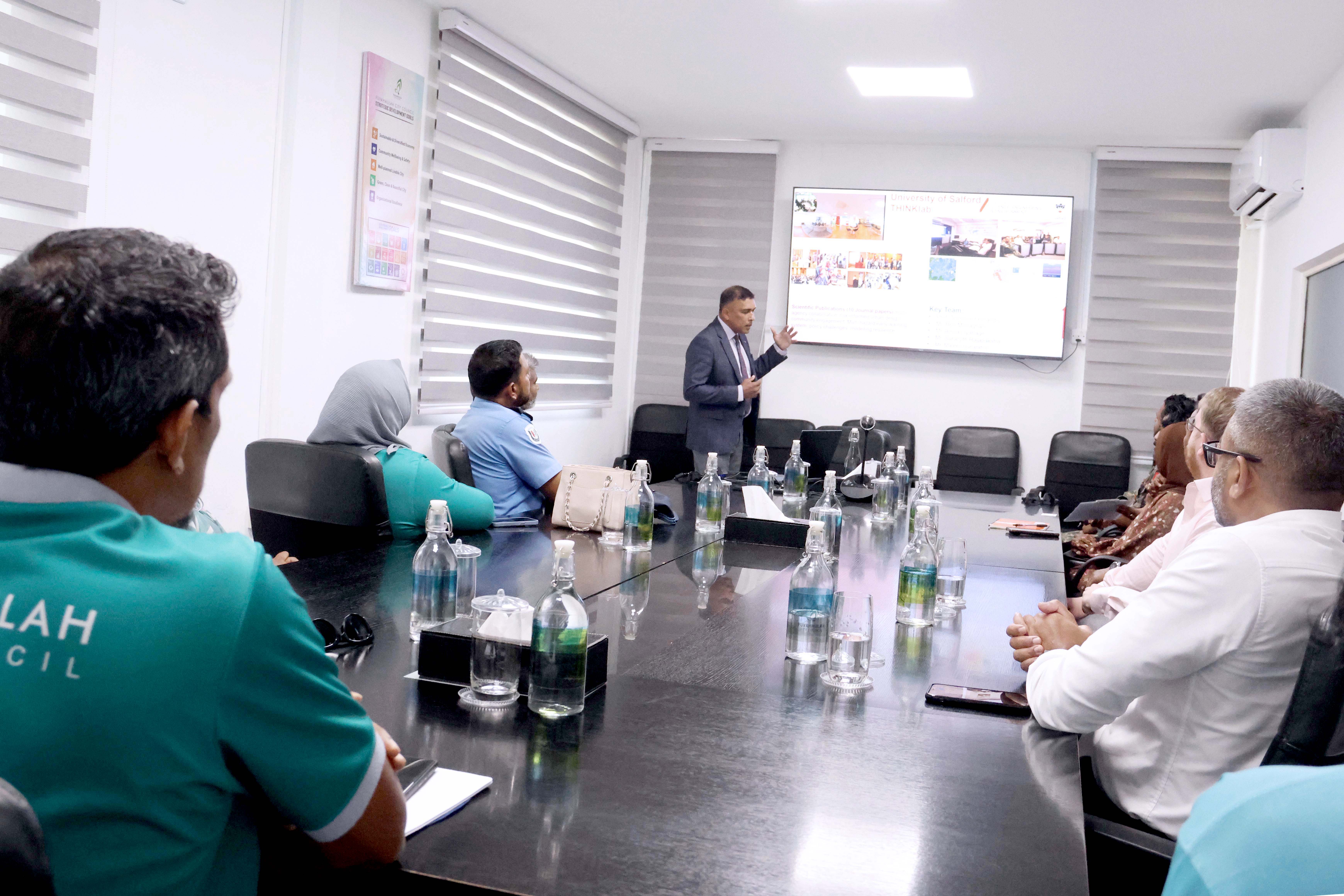
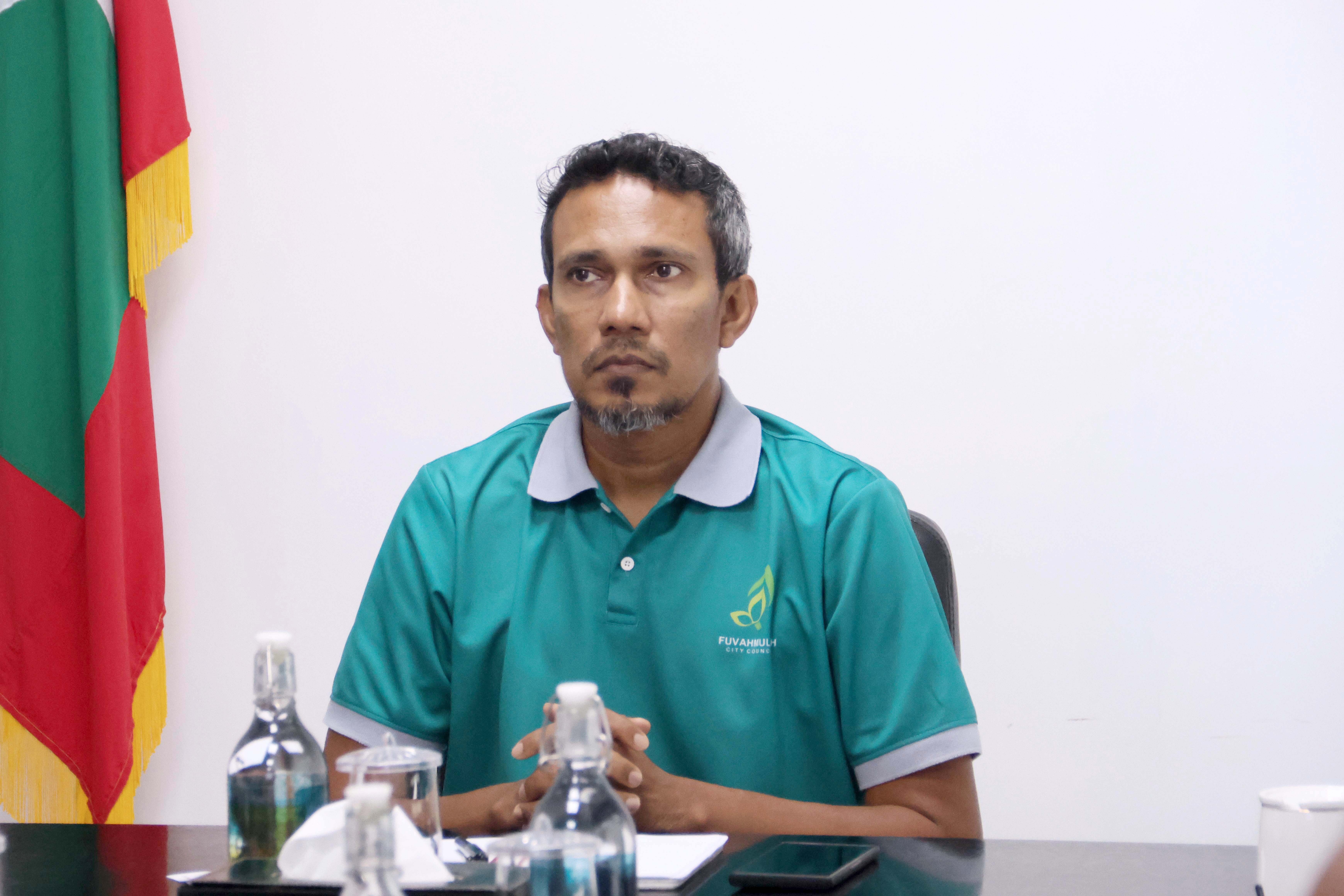
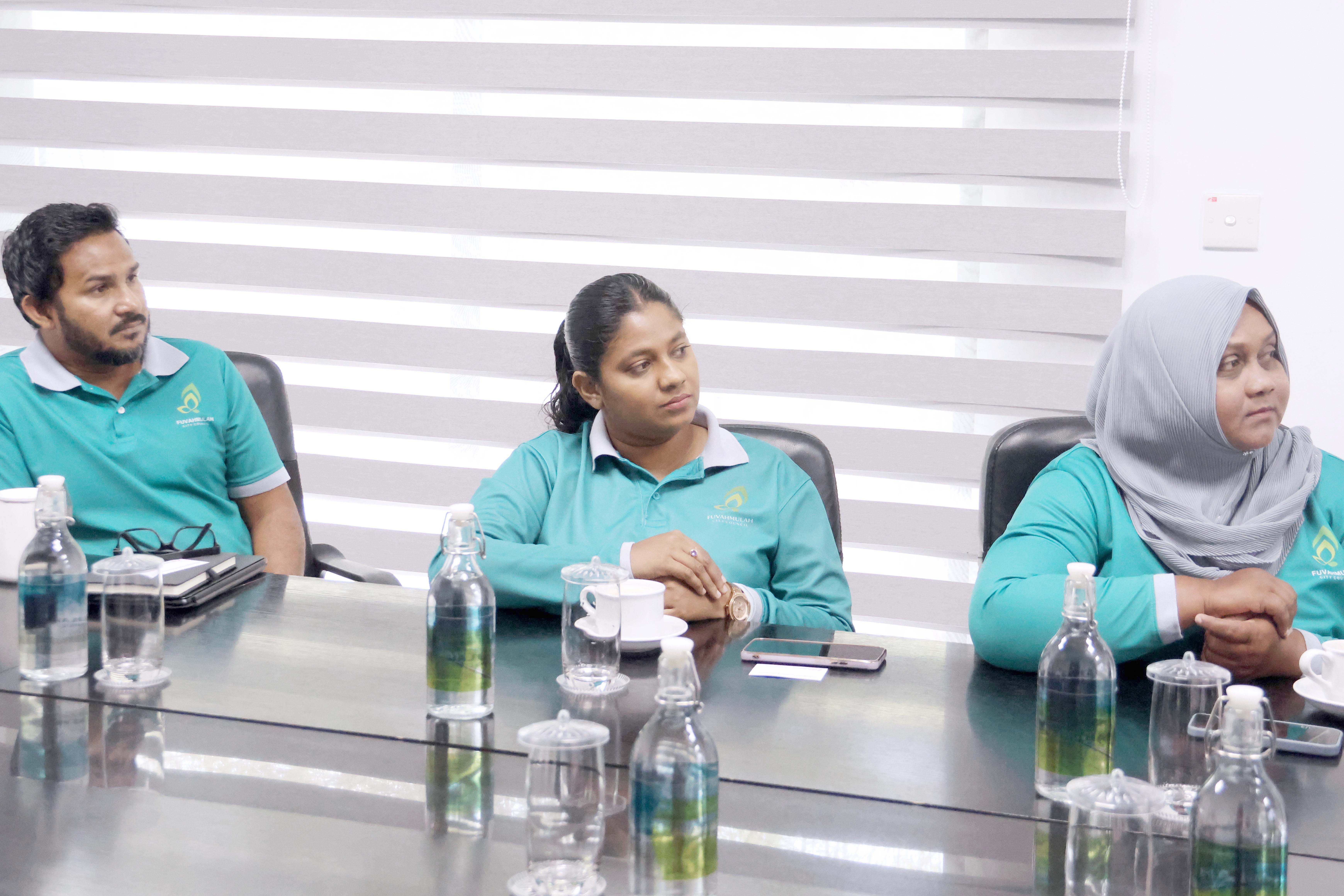
The second meeting was held with other relevant stakeholders
within Fuvahmulah Island. These include emergency responders, the Maldives
National Defense Force, the Maldives Police Service, and the Maldives Red
Cresent. Other organizations include the Women Development Council, Waste
Management Corporation, and Fenaka Corporation, responsible for electricity,
water, and sewage. Members of the Fuvahmulah Airport, a key logistical
infrastructure on the island, were also requested to join the meeting.
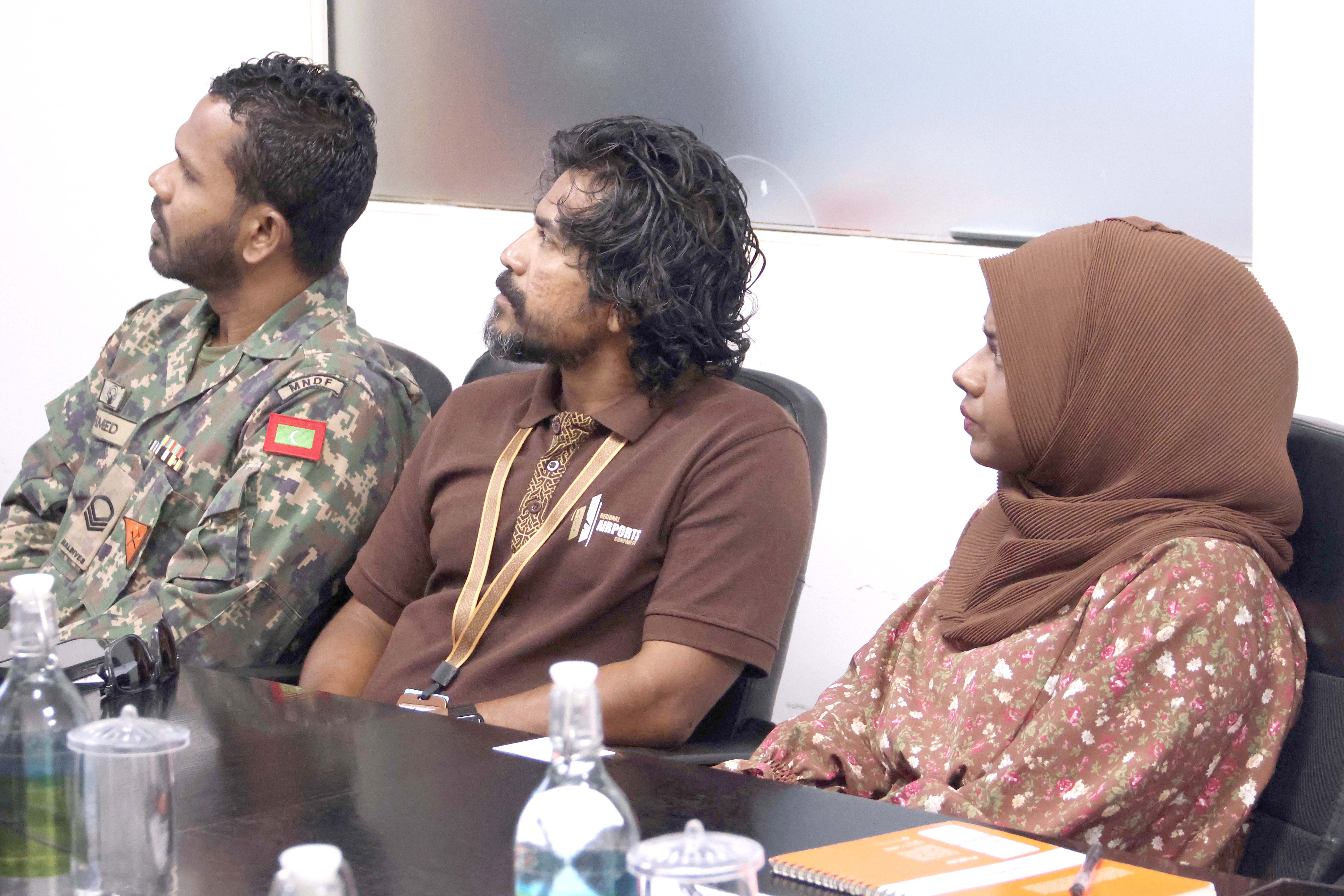

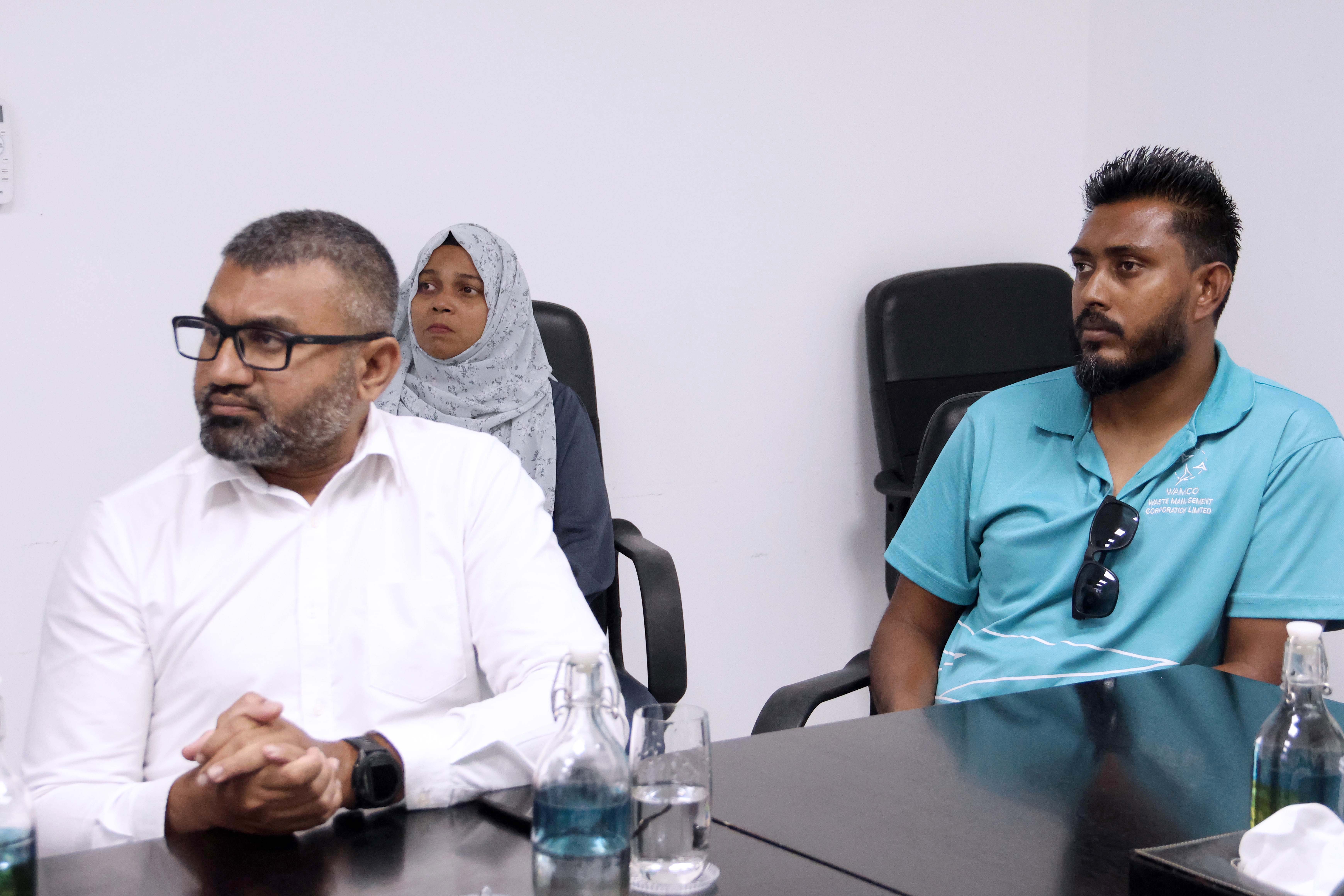
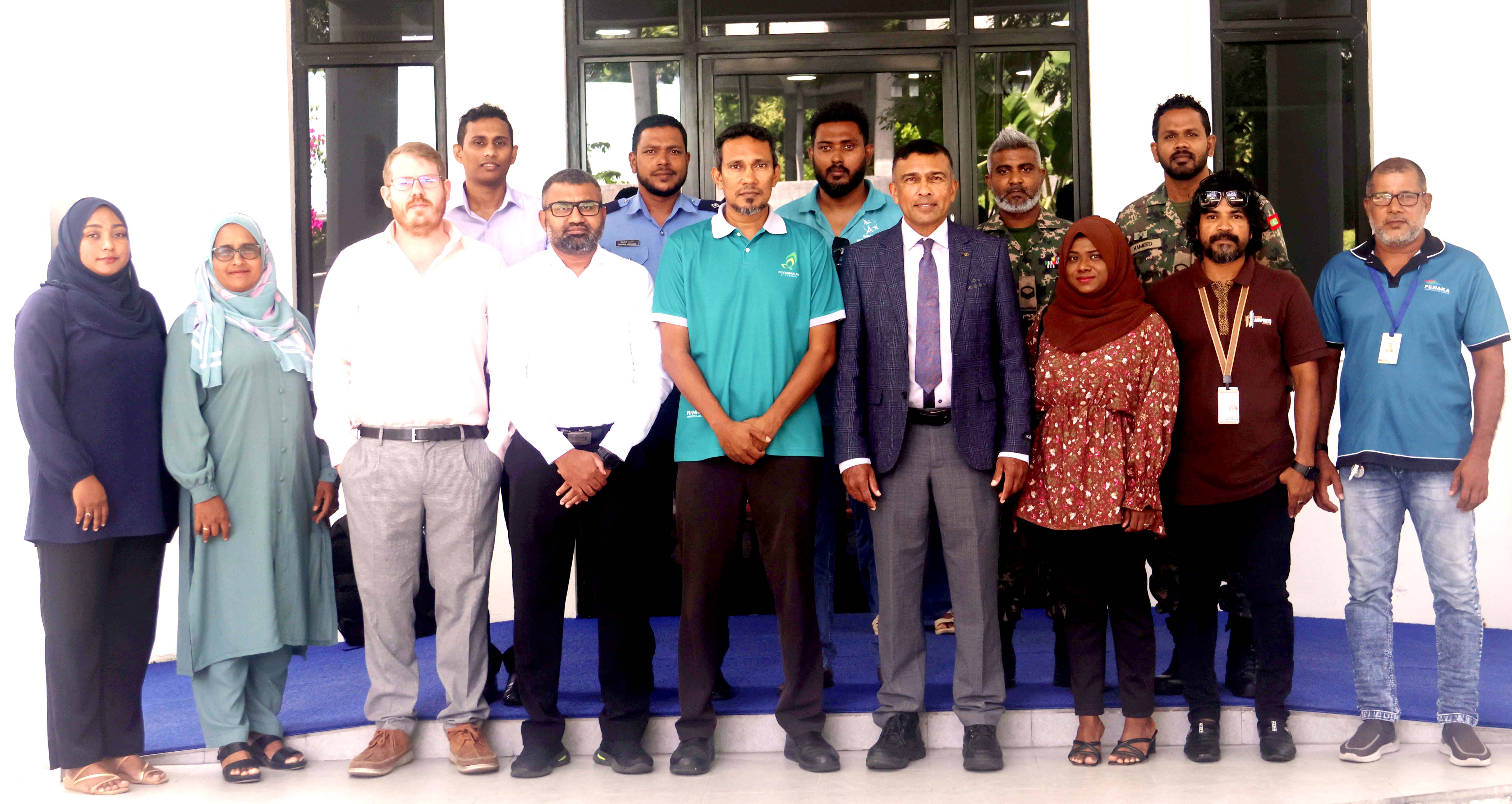
In the introduction, the project manager, Dr.
Ibrahim Waheed, gave a brief overview of the D’MADD project, which emphasizes
involving stakeholders and their feedback, comments, and input in every step of
the implementation process. He also explained that a larger stakeholder
awareness program will be launched after the project's phase 1 completion.
The Salford team introduced the project plan
and scope to the stakeholders. It was a productive meeting with new perspectives
and insights. Though the project was formulated for rain floods as the key
disaster within the island, the MNDF and the Police identified tidal surges as
the most prominent disaster threat. A mechanism to monitor the tidal level and
anticipate a surge will greatly benefit the island and other system
capabilities.
The visit concluded with a site visit to
Fuvahmulah Island organized by the city council, during which the team showed
key infrastructure on the island, including the flood drainage mechanisms.
